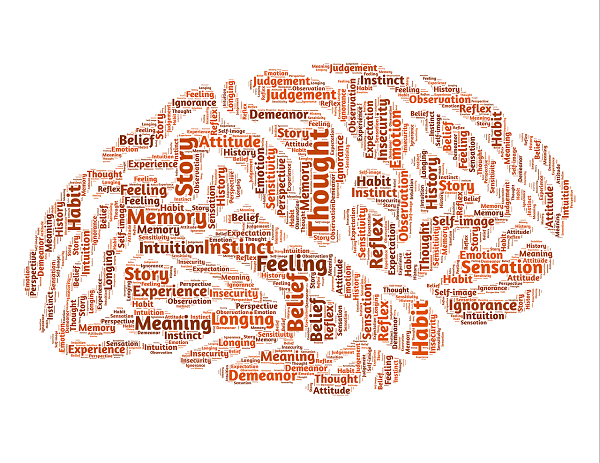You can learn a lot about someone from an interview. Their overall demeanour, confidence, interpersonal skills – all of these things can give you a strong general impression of the person in front of you. But how do you know how good they are at problem solving? How do you know if they’re an effective decision maker? How do you know how they’ll cope with sudden changes to their role or increased pressure?
If you don’t have answers to these questions, to some degree you’ll be hiring in the dark. That’s why cognitive ability tests are a fundamental part of our suite of recruitment tools – and why 72% of UK companies use them as part of their hiring process.
Cognitive ability tests allow you to assess how well your candidate is likely to perform in certain tasks and workplace situations. By measuring aspects of general intelligence, you can gain an understanding of things like your candidate’s verbal reasoning abilities, speed of learning, speed of thought, mental agility,and analytical thinking.
All of this gives you invaluable insight into how your candidate is likely to function in their role. If cognitive ability tests are not already part of your recruitment toolkit, here’s why they should be…
You’ll get a more rounded view of the candidate
Cognitive ability tests are one of the most accurate predictors of job performance. Their efficacy is measured by something called a correlation coefficient: a way of determining how accurate a tool is at predicting recruitment success.
Cognitive ability tests have a correlation coefficient of 0.51, compared to 0.36 for reference checks, and 0.18 for interviews. To put it plainly, they are by far the most powerful way to find out more about your candidate’s abilities and how well suited they are to the role.
“A detailed, comprehensive idea of your candidate’s personality, skills and abilities.”
Of course, when you combine all these elements (interview, background checks and ability tests), rather than getting a one-dimensional perspective, you gain a detailed, comprehensive idea of your candidate’s personality, skills and abilities. And it doesn’t just help with hiring choices.
Once you’ve hired someone, if you know how they respond to certain situations, how they learn, or how they make decisions, you can create an onboarding programme tailored to their individual needs. You can set them goals based on their motivational drivers. All of this translates to a stronger chance of your new recruit feeling happy, being more productive, and, ultimately, staying in the role.
They’re tried and tested
Cognitive ability tests have been around for over 100 years. When they first appeared they were inaccurate and non-standardised, meaning they had little value in terms of recruitment. Things have changed dramatically since then.
Now, this type of testing is standardised and widely recognised by recruiters, which means every candidate is tested on the same specific areas of mental agility and skill. At Identifi Global, all our cognitive ability tests are carried out within a strict time limit, which ensures the testing is fair.
By testing relevant areas such as reasoning, perception and problem solving, giving every candidate the same amount of time, and using standardised methods of qualitatively scoring and comparing results, cognitive ability testing has become a recognised and highly valued recruitment tool.
It gives you an idea of how they will do the job
We all want to know that we’re making a good hire. After all, recruitment is expensive and time-consuming. Cognitive ability testing increases your chances of getting the right person for the job.
You could argue that you can get a sense of their abilities and skills from their references and qualifications. Of course these factors are important but neither will give you an unequivocal idea of their cognitive skills. Just because someone’s got a first from a good university doesn’t necessarily mean they have the best problem solving skills or that their logical reasoning is better than a candidate who got a 2.1 from a college.
At Identifi Global, we use cognitive ability testing to get a picture of how well a candidate can understand new concepts, their ability to problem solve, their adaptability to unknown situations, planning and organisation, and how effectively they can apply new knowledge. This doesn’t just tell us how good they’ll be in the role but also how they’ll do it.
When you know that your candidate thinks and behaves in a certain way, you get a good idea of both their aptitude and their style. If someone is highly decisive and rational, they’ll probably be someone who needs – or prefers – less direct management. If they’re great at planning and organisation, they might thrive if you put them in charge of a particular type of project or specific task.
Cognitive ability tests don’t just tell you how clever or capable someone is – they give you a taster of what to expect in general from that person. This allows you to pick the most adept candidate and it also gives you the tools to ensure the best start once they join your organisation.
They help you make a decision
You’ve got two candidates who seem equally good. Both gave great interviews, both had sound background checks, both had strong references. So, how do you decide?
When you test your candidate’s cognitive abilities, you can make clear comparisons. If they both take exactly the same test under the same time constraints, you can easily see who scored higher in the areas most relevant to the role in question. For example, if great problem solving is paramount to the position, and one candidate scores dramatically higher than the other, it may make your choice easier.
“It can often be the factor which helps you decide which candidate to hire.”
Of course, it isn’t necessarily always that black and white. You may end up with two frontrunners who have similar strengths. Even if this happens, it’s virtually impossible for two candidates to score exactly the same in all areas, so there will still be differences. Ultimately, a cognitive ability test adds another string to your recruitment bow. When used in conjunction with interviews and background checks, it can often be the factor which helps you decide which candidate to hire.
Cognitive ability tests are a fundamental element of our recruitment suite because they work. Used alongside interviewing and background checks, they help you paint a detailed picture of who your candidates are and how well suited they are to the role. This allows you to pick the best person for the job, and, crucially, to retain them.
If you want to find out more about any of our recruitment tools, including cognitive ability tests, get in touch today.
Images via Unsplash (Scott Graham) and Pixabay

